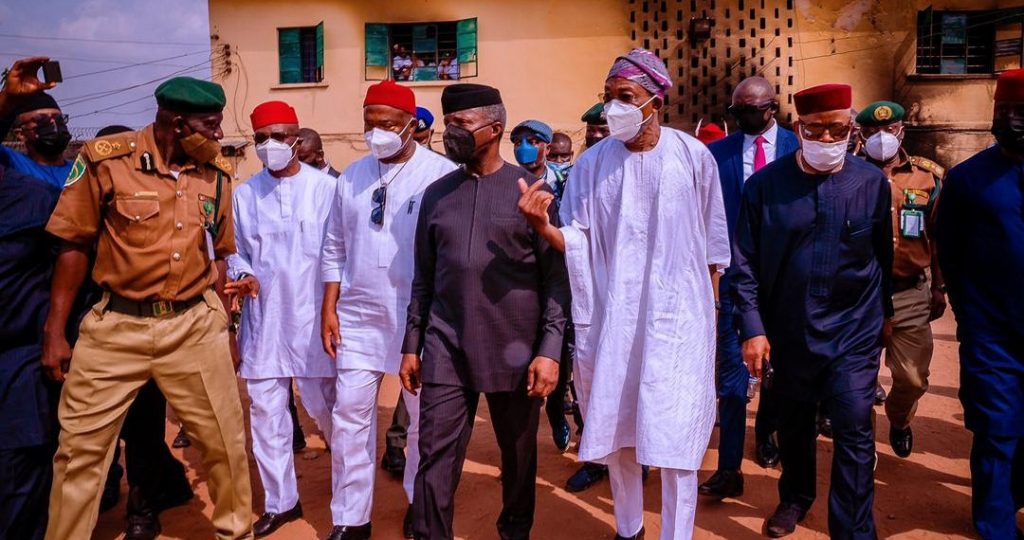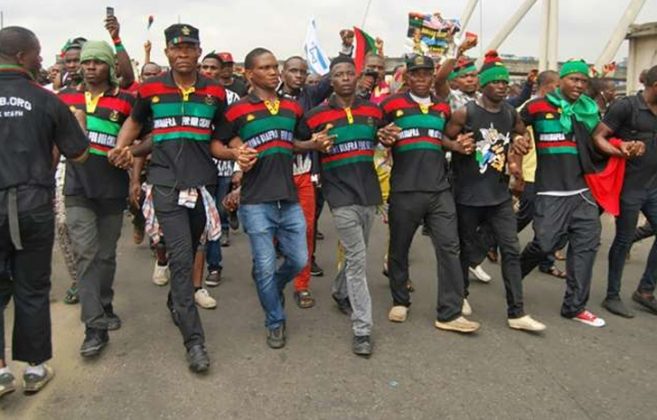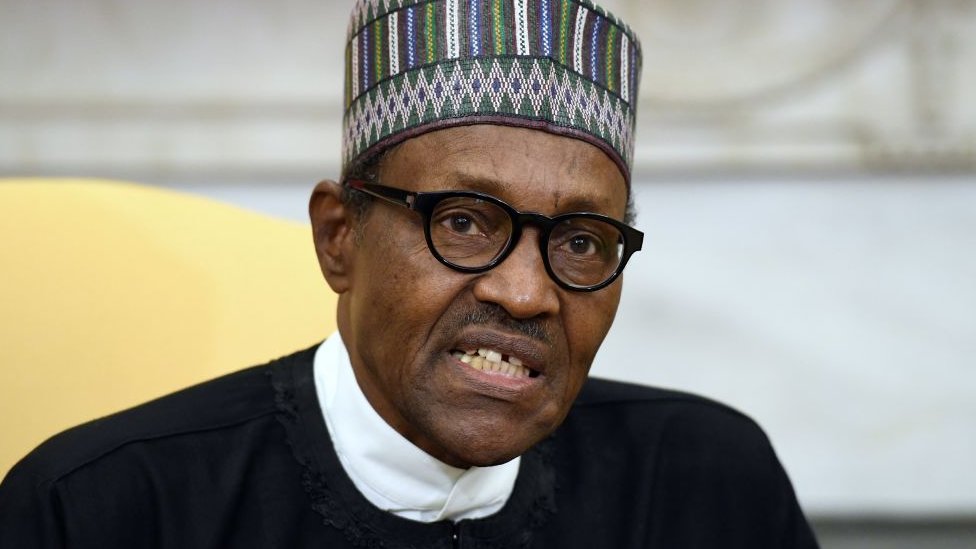Why separatist IPOB is thriving in Nigeria and how to curtail it

By Theophilus Abbah
Though the Indigenous People of Biafra (IPOB) has denied any role in the attacks on the Nigeria Correctional Centre and Police formations in Imo State last Monday, the escalating violence is associated with the separatist group’s growing popularity in the South-East . The group, with its Eastern Security Network, provides a semblance of security for a people traumatized by incessant attacks in rural areas by violent herdsmen and bandits who destroy farms, attack or kill farmers, rape women, and spread death in forests.
IPOB filled in the gap because South-East governors had failed to secure the lives and property of Igbo people.
Nnamdi Kanu, the fugitive leader of IPOB, justified the setting up of ESN by arguing that IPOB filled in the gap because South-East governors had failed to secure the lives and property of Igbo people. He said, “For years, our mothers have not been able to go to their farms for fear of being raped and cut into pieces. Our invaders, some of them from Sene-Gambia are in our villages raping and killing people at will. The Delta State Government has inaugurated Operation Delta Hawk, a security outfit in the classic fragmented approach of the Southeast to issues of national importance. The West has made effort to combat terrorism in their territory through Amotekun and even Miyetti Allah had the guts to float a vigilante outfit that has spread to every nook and cranny of the country with the support of the Presidency and northern governors.”
ESN and attacks on police formations
The ESN is embraced by the people of the South-East, but instead of cooperating with the police in eradicating criminals and criminality, the group took to attacks on police formations and security agencies. An indication that the security network would have issues with the authorities played out in its clashes with security operatives in Orlu in Imo State in February 2021. Also, from January to March 2021, not less than 60 policemen were killed in Nigeria, the majority of them in the South-East. Those suspected to have been carried out the attacks were IPOB members. The situation in the South-East has aggravated the insecurity from North to South.

Vice-President Osinbajo in Imo State after the attacks on security formations
Old Grudges and Ancient Fault lines:
The activities of IPOB are linked to ancient grudges of socio-economic marginalization of the Igbo nation and ancient fault lines traced back to the era before the 30-month long Civil War from 1967-1970. The group criticizes the Nigerian federal government for its poor investment, inequitable resource distribution, ethnic marginalization, and heavy military presence in the South-East region. However, these complaints are not new to IPOB. Before Nnamdi Kanu set up the group in 2012, there had been about 10 other groups with similar grievances and separatist agenda.
Before Nnamdi Kanu set up the group in 2012, there had been about 10 other groups with similar grievances and separatist agenda
They include the Movement for the Actualization of the Sovereign State of Biafra (MASSOB), Biafra Revolutionary Organization (BRO), Eastern Peoples Congress (EPC), Joint Revolutionary Council of Biafra (JRCB), Biafra Liberation Crusaders (BLC), Salvation People of Biafra (SPB), Eastern People Congress (EPC), Igbo Youth Cultural and Restoration Initiative (IYCRI), Movement of Biafrans in Nigeria (MOBIN), and Customary Government of Biafra (CGB). Each of the movements, mainly MASSOB, has suffered heavy repression from government. However, IPOB has kept the flag of the Biafra movement flying locally and internationally due to its use of Radio Biafra, domiciled in the United Kingdom, and IPOB’s active presence on social media.

File Photo: IPOB members on protest march
Buhari and IPOB
The IPOB was founded during the Yar’adua/Jonathan administration from 2012, but the group was generally ignored by South-East political leaders and the federal government. However, since 2015, shortly after President Muhammadu Buhari came to power, security agencies began to arrest, detain, clamp down and kill members of IPOB who engage in peaceful protests. For instance, on October 14, 2015, the Department of State Security (DSS) arrested Nnamdi Kanu, leading to mass protests in several parts of the South East. An Amnesty International report in 2016 entitled: Nigeria: ‘Bullets Were Raining Everywhere: Deadly Repression of Pro-Biafra Activists,’ provides a timeline of the repression of the group, culminating in the ignoble massacre on May 30, 2016 when at least 60 IPOB members were killed in Onitsha and Asaba on the anniversary of Biafra.

File Photo: Buhari goes tough on IPOB
Appalled by the killings, governors of the South-East banned the group from engaging in any form of protest, as the Federal Government labelled IPOB as a terrorist organization. However, this has not stopped the activities of the group, as on several instances, peasants and middle level civil servants in the South-East obeyed IPOB’s stay-at-home orders in boycott of elections conducted by the Independent National Electoral Commission (INEC). It is believed that peasants and elements of Igbo in the Diaspora contribute funds to keep IPOB’s campaign alive.
IPOB’s rhetoric wins support from Igbo
Using Radio Biafra and its website, IPOB leaders spread the sense of victimhood that aligns with the experiences of the Igbo in Nigeria. The medium is populated with stories and analyses about the dehumanization of youths by security agencies; the denial of opportunities to the people of the South-East, videos about the Biafra war which emphasize the cruelty meted out to the Igbo people; perspectives on the military activities in the South-East and the alleged massacres going on; and arguments that support the idea that the Igbo would enter into paradise on earth if Biafra were realized. Incidentally, the rhetoric on the media platforms align with even reports by Amnesty International on military brutality on IPOB members.
One of the military men pointed his gun at me and shot me.
AI’s report on the 2016 repression has testimonies like the following: “One eyewitness, Uzor Otimpi (not his real name), a 21-year-old businessman, told Amnesty International what happened on 2 December: “We had a peaceful protest at the Head Bridge. Everybody marched and sang Biafran songs. We were headed towards the statue of our great leader, Odumegwu Ojukwu… A few meters away from the statue, we sighted a huge number of heavily armed police, army, navy and civil defence personnel. One of the military men addressed us and requested we go home. We insisted that we must get to the statue before going home. They asked us to all raise our hands to prove we had no weapons. We complied and as we got closer, the naval personnel started shooting at us. He further said: “One of the military men pointed his gun at me and shot me. I fell down immediately and my intestines popped out. Everyone started running. The military men came and started loading the wounded into the Hilux truck but when they got to me, one of them asked them to leave me that I would not survive it, so they left me. That was when some IPOB members rushed and took me to Multicare Hospital.”
What Government Failed to Do
Experts in Frustration/Aggression theory argue that when a group is repressed, such organization could engage in violence. The theory was developed by Dollard, Miller and Mowrer in 1939, and later strengthened and popularized by Berkowitz and Yates (1962). The basic assumptions of the theory are:
• the occurrence of aggressive behaviour always presupposes the occurrence of frustration
• that antagonistic perceptions arise when a group of people are denied access to opportunities that helps them satisfy their needs, especially basic needs.
• It also maintains that the failure to address the demands or complaints of specific groups within a state; whether religious, ethnic or even political, could give rise to frustration, which could in turn, eventually lead to aggression.
• In other words, the aggressive actions of certain groups within a polity, could be a visible expression of bottled up/ long term frustration, arising due to the inability of the powers that be to address identified problems or complaints of selective discrimination.”
The Buhari administration, instead of prioritizing military action, should rather aim to dialogue with the leaders of IPOB and address some of the grievances they have raised. Lopsided government appointments and the poor state of infrastructure in the South-East are part of the visible realities in that part of the country which enrich IPOB’s rhetoric. Federal and State governments must engage in developmental projects that would be of benefit to the people of the South-East.
Set up a judicial commission of inquiry into all allegations of human rights violations committed by the Nigerian security forces
In order to curtail the influence of IPOB, governors of the region must come up with a credible community security arrangement to deal with incessant attacks by criminal herders and bandits who have made life unbearable for those in rural areas. It is apparent that the Federal Government does not have the capacity to police territories used for farming where farmers-herders conflict occurs. State governors must take charge, if they do not want IPOB and its Eastern Security Network (ESN) to be endeared to the people.
In addition to these measures, it is advisable for government to implement some of the recommendations by Amnesty International in its 2016 report, which calls for the following:
• End the ban on public assemblies organized by pro-Biafra activists.
• Set up a judicial commission of inquiry into all allegations of human rights violations committed by the Nigerian security forces with the aim of bringing suspected perpetrators of such crimes to justice in fair trials without recourse to the death penalty, and ensure a remedy and reparations for the victims.
• Ensure that in any such investigation or trial witnesses are able to testify without fear of reprisal. This should include giving the commission of inquiry the powers and resources to take all necessary measures to protect witnesses, and establishing an effective witness protection programme for subsequent trials.
• Seek the assistance of international experts in conducting exhumations, autopsies and investigations. Bodies interred in mass graves should be exhumed with a view to conducting an independent autopsy by recognized Nigerian and international forensic pathologists to determine the causes and circumstances of death.
Sign up for The Insight Newsletter
Get in-depth, research and data-based interpretative reports from around Nigeria.



